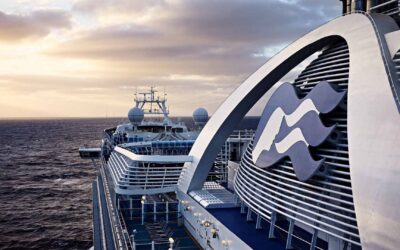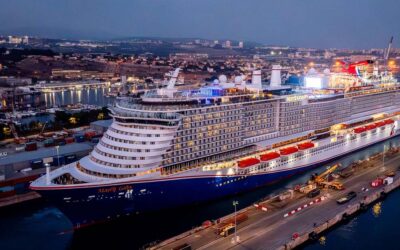Norwegian Cruise Line Holdings Ltd. (NCLH) and Repsol have announced a long-term agreement to supply renewable marine fuels at the Port of Barcelona for eight years, beginning in the 2026 European season. This pact, considered pioneering in the cruise industry, positions both companies at the forefront of the maritime energy transition.
NCLH, which operates the Norwegian Cruise Line, Oceania Cruises, and Regent Seven Seas Cruises brands, will be supplied by Repsol with a portfolio of renewable fuels, including biofuels and, starting in 2029, renewable methanol, when its ships call at Barcelona. The initiative supports NCLH’s global sustainability strategy, the Sail & Sustain® program, aligning with its emissions reduction goals and progress toward a more sustainable and efficient operation.
The production of renewable methanol will be managed at the innovative Ecoplanta facility in Tarragona, which will transform urban waste into circular fuels starting in 2029. This facility will be able to process 400,000 tons of municipal solid waste and convert them into 240,000 tons of fuels and circular products per year. NCLH is the first company to close a purchase agreement for the renewable methanol from this plant, emphasizing its leadership in adopting low-carbon solutions.
The agreement responds to both international regulatory changes and the joint goal of achieving carbon neutrality by 2050. All fuels supplied meet ISCC EU certifications and support NCLH’s decarbonization and environmental compliance plan.
Repsol, for its part, reinforces its strategy of offering solutions to reduce emissions across all transportation sectors, including the operation of renewable diesel and SAF plants in Cartagena and Puertollano, in addition to leading the 100% renewable fuel supply network in Spain and Portugal, with more than 1,300 stations. The company also promotes sustainable aviation and the circular economy, betting on alternatives that do not require modifying existing engines or infrastructure.
With these advances, NCLH pursues a 10% reduction in greenhouse gas emission intensity by 2026 and 25% by 2030, in line with its environmental objectives and the transformation of the maritime tourism sector.
Key Points of the Agreement
- 8 years in duration, starting in the 2026 European season.
- Supply of biofuels and renewable methanol to NCLH’s fleet in Barcelona.
- Renewable methanol produced at Ecoplanta Tarragona, a pioneer in waste transformation.
- Fuels certified under the ISCC EU standard, supporting the plan toward Net Zero emissions in 2050.
- NCLH is the first to sign a purchase agreement for this renewable methanol.
- Repsol consolidates its leadership in renewable fuels in the Iberian Peninsula.



